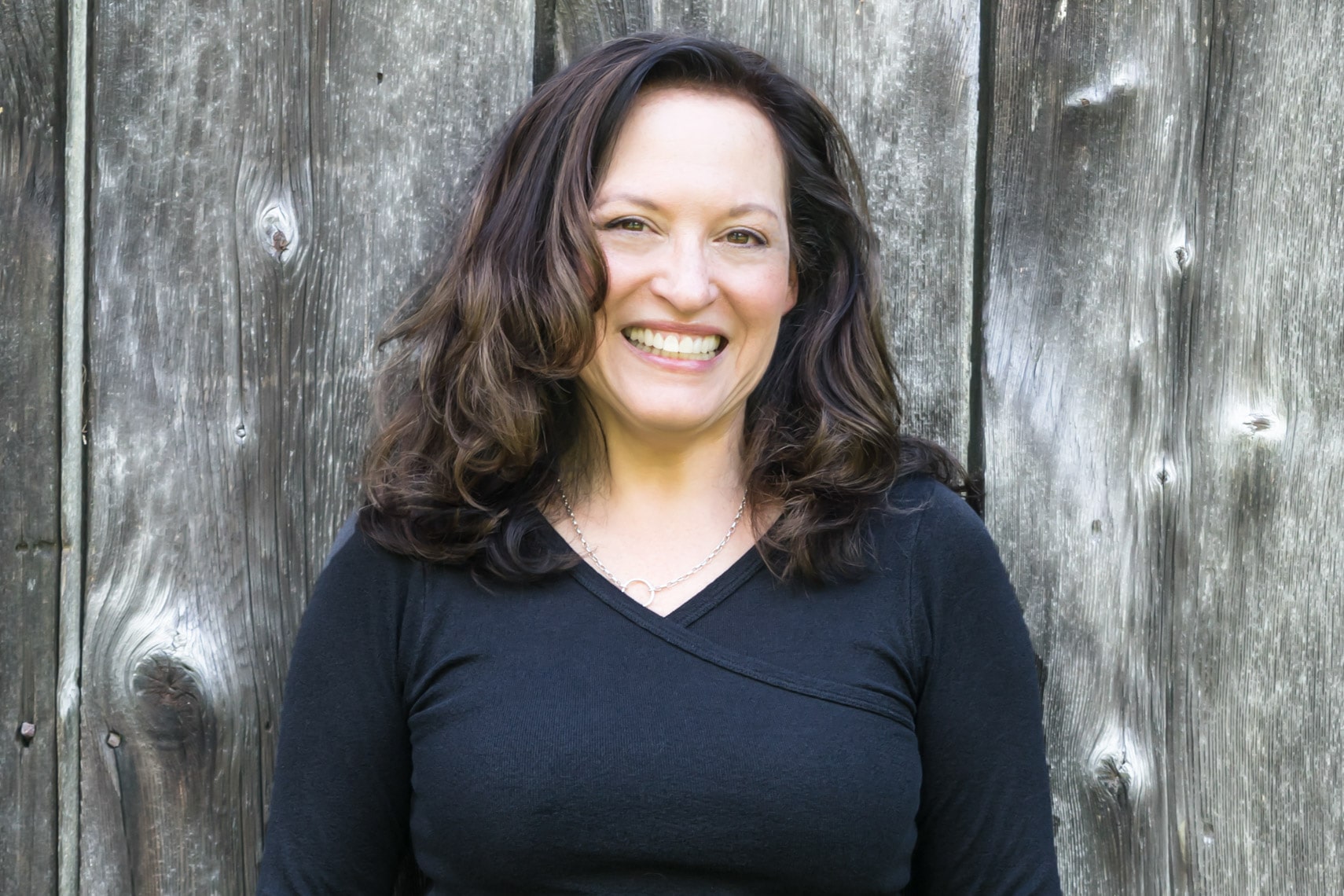About The Monash University Low FODMAP Dietitian’s Course
Are you a Registered Dietitian Nutritionist (RDN) or other health professional with aspirations to specialize in the low FODMAP diet?
In 2018 Monash University launched their online training course for health professionals: The Low FODMAP Diet for Irritable Bowel Syndrome.
For those not familiar, Monash University is the birthplace and the most respected primary source for information about the low FODMAP diet.
The research team at Monash University in Melbourne, Australia led by gastroenterologist Professor Peter Gibson and nutrition scientist and dietitian Associate Professor Jane Muir developed the low FODMAP concept in 2005. The diet has proven to be the most effective approach to managing IBS symptoms providing symptom relief for approximately 75% of IBS sufferers. This far surpasses other conventional therapies including the National Institute for Health and Care Excellence (NICE) guidelines and pharmacology.
Monash at The Forefront
Aside from ongoing IBS research studies Monash operates two FODMAP certification programs. Their product certification tests prepared food products for FODMAP levels and provides the stamp of approval to be low FODMAP certified if total FODMAP content is below established cut off values. Fody Foods, for instance, has all of their products Certified Low FODMAP by Monash. Their new recipe certification provides validation and certification for recipes. ModifyHealth has their recipes Certified Low FODMAP by Monash.
Monash remains cutting edge with their strong social media presence, frequent blogs, patient education materials and clinical training. As a RDN specializing in gastrointestinal nutrition, IBS sufferer and dedicated FODMAPer myself I signed up for the dietitian course immediately.
Why I Took The Course
I strive to practice evidenced based nutrition, which can sometimes be challenging with new approaches such as the low FODMAP diet since it is an evolving science. My previous training has included two low FODMAP webinars with Dietitian Central, utilizing various low FODMAP books, and the Microbiome and SIBO Summits.
I have followed Kate Scarlata RDN, Patsy Catsos MS, RDN, LD, Monash, and other low FODMAP websites. I have also dabbled with the integrative and functional aspects of IBS and SIBO and sought opinion from naturopaths.
These self-taught opportunities provided me with the confidence to expand my outpatient practice and market both myself and this diet to the doctors and gastroenterologists at the multidisciplinary clinic where I practice. Despite this previous training, it has been a challenge to keep up to date, especially with the differences of opinion and outdated resources found online and elsewhere.
Nonetheless, teaching the low FODMAP diet has been the most rewarding experience on a personal and professional level. Helping others feel good is addictive, thus began my love affair with the low FODMAP diet.
How the Monash University Low FODMAP Dietitian Course Works
The Monash Training consists of 10 modules and provides 25 CEUs, which are accredited by the Academy of Nutrition and Dietetics and the British Dietetics Association. This training will take 20 to 25 hours to complete.
Completion of this training, plus a passing grade on the final exam, awards one with the Monash University Certification of Completion, which increases visibility by listing contact information on their app plus the trust and confidence for those seeking a qualified clinician.
The 10 Modules Explained
Below is a breakdown of the ten modules and the main highlights. Before moving on to the next module one must past a quiz. The module exams are challenging and make certain you are well versed before moving on. There are many short video clips of counseling sessions demonstrating how the RDN handles difficult patients over consecutive visits.
The final exam is comprehensive and tests your knowledge on every FODMAP concept including clinical assessment skills. I passed on my first attempt, however you are given three opportunities to take the exam. Also included are handouts available for download, which can be used in your practice, plus numerous research studies to further your reading.
Module 1: Introduction to Functional Bowel Disorders and Irritable Bowel Syndrome
A clear definition of IBS and the Rome IV criteria diagnosis are discussed, which is necessary to establish before implementing the low FODMAP diet. I learned how to identify high-risk patients, red flag symptoms and when to refer to a gastroenterologist or doctor before dietary modification to ensure safe and effective care.
Also discussed are other applications of the low FODMAP diet. More recent studies show the benefit of adding the low FODMAP diet concept to other gastrointestinal related diagnoses.
Quite often my patients have trialed alternative therapies for their IBS. This module provided me with practical advice on how to tactfully challenge non-evidence based approaches, such as breath tests and food allergy testing.
Module 2: Dietary Management of IBS and an Introduction to FODMAPs
I had a flashback of a college nutrition science class with this updated explanation of carbohydrate metabolism. Pass the chalk and let me explain or maybe I’ll just play this descriptive little video for you.
Taking a detailed food recall or reviewing a food log is common practice when counseling IBS patients. Identification of high FODMAP foods is important, however other dietary factors such as quantity and frequency of other nutrients such as fat, protein, and types of fiber intake may contribute to symptoms and should also be considered when developing a personalized nutrition approach.
A review of the current gaps in low FODMAP literature and areas where more research is needed helps clinicians know when to use their best judgement.
Module 3: FODMAP Composition of Food
An overview of their lab testing process which determines FODMAP content and cut off values. This module breaks down the science behind the establishment of these levels helping the dietitian better explain the importance of portion control and the concept of FODMAP stacking.
Did you ever hear about boiling a potato to reduce the potassium content? Similarly, how one prepares a food can affect the FODMAP content such as pickling, pressing, straining, fermenting and more.
Module 4: Dietetic Assessment
As a RDN specializing in the low FODMAP diet I want to teach this diet to EVERYONE. Well, this is not always the best approach. Here I learned how to determine if a patient is an ideal candidate for the low FODMAP diet plus practical skills for completing a nutrition care plan and follow up visits.
This includes looking at your patient from a more global viewpoint with attention to frequency and duration of specific symptoms, previous diets trialed, known food triggers, hydration, current dietary habits, fermentable fiber intake and lifestyle habits before determining the best course of action.
Module 5: Implementing a low FODMAP Diet – Practical Skills
Several variations of the low FODMAP diet are reviewed aside from the strict low FODMAP diet, which is most discussed. This is not a one size fits all diet approach.
The Monash app is reviewed with an emphasis on how to use it to its best advantage when teaching the elimination and re-challenge phase.
This module also includes information on how to test for tolerance foods with unknown FODMAP levels
Module 6: Re-challenge Phase
As with the elimination phase there are several different re-challenge methods described plus tips. Basically there are 3 different elimination approaches and 3 different re-challenge methods.
Module 7: Troubleshooting
Here a clinician can learn how to best help patients that “fail” the low FODMAP diet with modifications to the low FODMAP plan to better meet individual needs and lifestyle habits.
There are many factors to take into consideration when evaluating a patient with inadequate symptom relief and they are reviewed in this module.
Module 8: Adjunct Therapies – Psychological and Pharmacological Approaches
As many of us know stress management plays a huge factor with IBS; there are now evidenced based guidelines on the psychological treatment for IBS which may be used solo or in combination with diet modification. Probiotics are a hot topic in the world of IBS.
This module brings clarity to the most recent to probiotic recommendations for IBS including strain specificity, timing and attention to the shortfalls with current research.
Module 9: Adjunct Therapies – Other Dietary Approaches
It is well known that fiber is important for bowel regularity. Specific recommendations on how to modify specific fibers via diet or supplements can be recommended based on IBS subtype and current eating habits to better address diarrhea and constipation management.
Before the low FODMAP diet those with IBS were encouraged to eat smaller, more frequent meals, limit gastrointestinal irritants, exercise regularly, increase fiber, reduce high fat foods, and ensure adequate hydration.
These recommendations still have value and should be considered at baseline. For example, establishing healthy habits such as eating regular meals, reducing intake of fatty meals, and avoiding excessive caffeine and alcohol may be initial steps before implementing the low FODMAP diet.
Adding glucose to fructose is reviewed since this is sometimes recommended to improve fructose malabsorption.
Module 10: Other Applications of a Low FODMAP Diet
I was excited to learn about other population groups that may benefit from the low FODMAP diet such as breastfeeding mothers with colicky babies and women with endometriosis and IBS related symptoms. I also feel prepared to teach the low FODMAP concept to pediatric patients and their parents when appropriate, something I would not have considered prior to this training.
I often see patients with SIBO (small intestinal bacteria overgrowth) alone or in combination with IBS diagnosis. The lack of evidence based guidelines around SIBO makes it challenging to provide nutrition therapy. Practical guidelines on when to utilize low FODMAP with SIBO were also provided plus adjunct therapies to consider if diet alone does not improve symptoms.
Conclusion
With 18 years of experience as a RDN and proficiency in the low FODMAP diet this training reaffirmed much I already knew, and yet also provided me new skills of how to integrate evidence based practices, such as recommending a specific fiber supplements or probiotics, or to consider referring patients to a gut related hypnotherapist.
This course taught me concepts that I cannot find in a book.
As a clinician we often rely on our best judgments and naturally we let personal and patient experiences influence how we practice. After this training I have a more neutral stance and big-picture mentality of IBS and other functional gut disorders, which helps me be a better listener and RDN.
This has been one of the most practical and enjoyable trainings I have ever taken and as a result I feel so much more confident with all my IBS patients. For example, common dietary restrictions are gluten and dairy, which in some cases are not necessary.
Now I encourage my patients to be less restrictive while remaining well versed in the strategies to challenge these possible food triggers when appropriate.
This is not an easy diet to teach or a specialty where a RDN can be complacent. This training can be a great place to start for anyone new to this diet and an important update, for expansion of skills and knowledge for those already practicing.
Monash University has set the standards with the most up to date, evidence based recommendations so we as clinicians can be providing a consistent universal message.
Taking the Course When You Are Not A Dietitian
In our effort to keep our information up-to-date and consistent, Dédé, (along with several of our Success Team) has completed the training. We are very serious about bringing you accurate information in regard to the Low FODMAP diet and this certification is just one way that we are working for YOU!
A Non-Dietitian’s Experience
In November 2019 I decided it was time that I take the Monash Dietitian’s Course. We knew that Monash was about to launch a “Patient’s Course”, but Robin and I felt it was important that I shore up my credentials and looked upon this as necessary continuing education and the more thorough Dietitian’s Course made more sense for me.
I maintain our Test Kitchen for FODMAP Everyday® and as such I am in charge of creating our original recipe content and vetting any recipes that come our way. My professional recipe development experience is solid, having been working in this business for 30 years, but the low FODMAP diet is based upon clinically proven scientific principles – what we do here is not mere recipe development and testing.
We both felt very strongly that since we present ourselves as experts in the field, that we should have the background to support that from all aspects – recipe development and the diet.
Why I Took The Course
I was a bit daunted at the idea of taking the course as I am not a dietitian, but I was also excited at the prospect of going through it and coming out the other side with the knowledge I would gain.
Since my focus is recipe development, obtaining a RD degree did not make sense. Going through the most rigorous FODMAP training available made loads of sense, and this course is it!
This is a good time to note that there are many people who have blogs, sites and books who are “nutritionists”, “health coaches”, “culinary nutritionists” and the like. You can even go online and obtain a “health coach certification”.
Please read our article titled Dietitian’s & Nutritionists: What’s The Difference?
The short point we want to make here is that these titles and accreditations can be obtained without any organized, qualified formal education, supervised training, or work experience. “Nutritionists” in the United States, Canada, Australia, and the United Kingdom are not regulated nor legally bound to any governing body ensuring that the education provided is safe and evidence based. Neither are “health coaches”.
So, it was never going to be enough for me to do anything shy of the most thorough training available to me as a layperson that was specifically focused on the low FODMAP diet – and since this course was developed by the originators of the diet, we were thrilled to have access to it.
My Experience Taking The Course
My background is in recipe development and journalistic writing. In college, I did veer off into science for about a year and a half, focusing on nutrition and exercise physiology, so reading and comprehending scientific premises and literature was not completely foreign to me.
The course, as described above, is separated into modules that you work through one at a time. Monash estimates that the course will take approximately 22 hours to complete. I set aside 4 days to power through it, but you could approach it in whatever way that makes sense to you.
I was quite energized by the process. I found the structure, with its mini tests incorporated throughout, to be validating and encouraging.
Each module has a test at the end, which you can retake as many times as you want. When you get the end of the course, there is a timed 2-hour test and that is where my nerves kicked in. How was my information retention? This would show my mettle. You have to get an 80% to pass. I ended up with a 94% and was absolutely thrilled, not only with my score, but knowing that I had worked through the course, enhancing my FODMAP knowledge.
Who Should Take The Dietitian’s Course?
I will answer this question simply: ANYONE who is creating any kind of FODMAP content and positioning themselves as credible should take this course.
I recognize that my situation is not common, being that I am working full-time as a low FODMAP recipe developer and a FODMAP diet educator, but my circumstance is certainly not unique.
Certainly, if you are a dietitian who works with IBS patients, this course is a must in our opinion, but we also think it would be extremely beneficial for any recipe developers, bloggers, complementary health practitioners or for ANYONE who is creating any kind of FODMAP content.
The course sets you up for success with a thorough understanding of the diet and prepares you to implement the diet correctly.
And then Robin wanted me to add that it would also be great for “low FODMAPers who are crazy like Dédé”. Meaning, that if you follow this diet, and you want to understand it to the best of your ability and be able to follow it properly, then this course should be a consideration.
If you are not a RD and are interested in some sort of formal FODMAP training but perhaps this course is more than you want to tackle, definitely take a look at Monash’s Patient Course.
If you have taken the Monash University Dietitian’s Course let us know what you thought were the most important takeaways for you as a practitioner – comment below.
If you would like more information on this course you may go directly to the Monash University course description page here.











I’m interested in this course. May I have more information?
I’m almost nutritionist, doing my Master’s thesis but I’m.also pharmacist and working among ibs patients.
Hello Heli,
I am so glad to hear that you are interested in taking this course. I highly recommend this course to anyone working with IBS patients. Please visit Monash’s website to learn more about this online training. Here is the link: https://www.monashfodmap.com/i-am-a-health-professional/online-fodmap-training/
Hi! Thanks for the information provided. I am looking into the course but the website isn’t very explicit on the time it takes to finish all 10 modules. Is it interactive or you do each module by yourself? Thanks!
Hi Susana, They suggest that it takes about 22 hours total. When I did it I took 2 to 3 days just to focus on it and go straight though. Everything is self-directed. I did not stop in the middle of any modules (don’t remember if you can or not). None are timed EXCEPT the last test, which takes about 2 hours, is timed and you have to score at least 80% to “complete” the course. I enjoyed it very much, learned a lot and am very glad that I did it, even though I am not a RD.